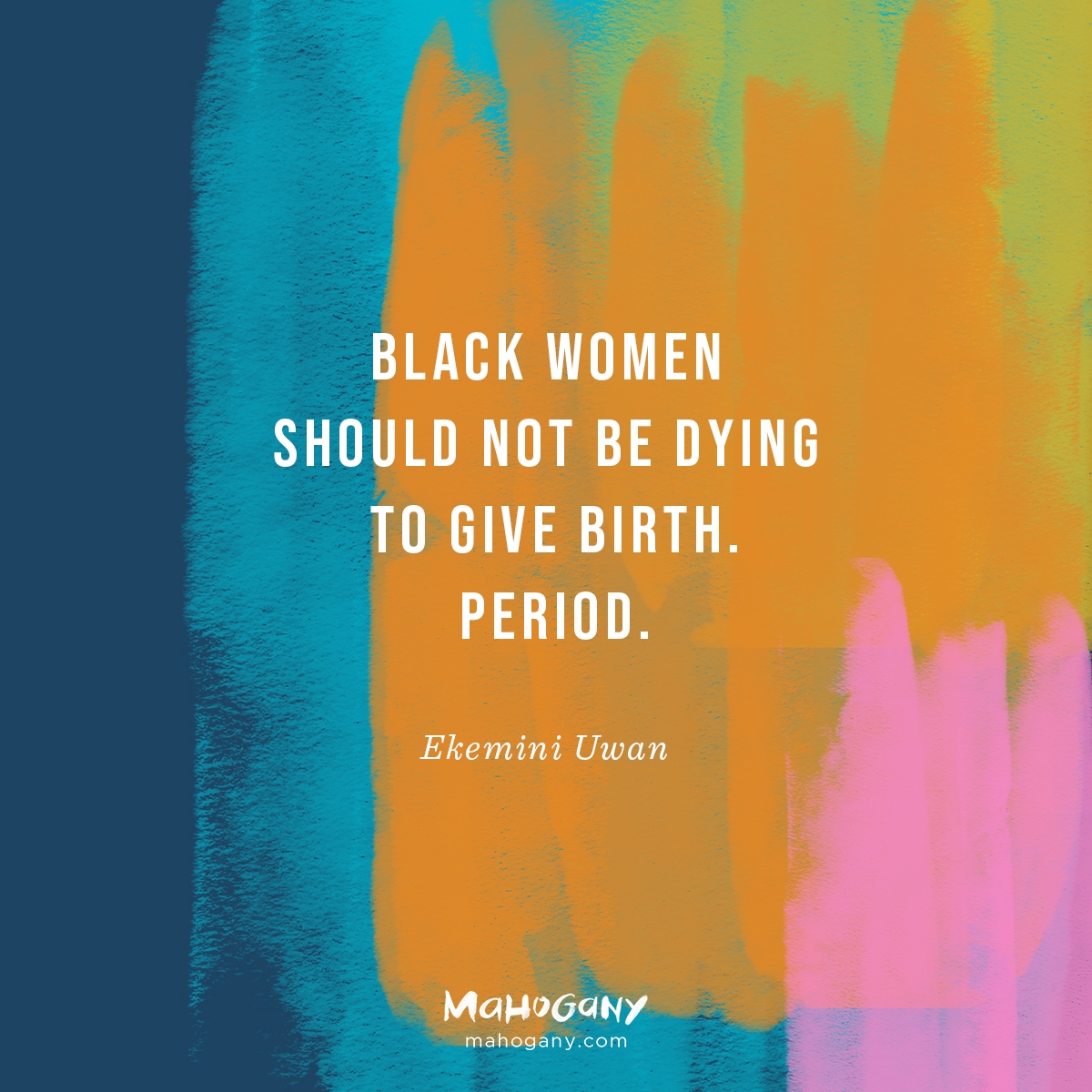It is a curious thing to exist in this Black female body—lusted after yet not loved, toiling only to have our work trivialized. We are the very embodiment of intersectionality, and we navigate the attendant oppressions that come with our Black and female identities, as they converge and constrain us. A birthright thrust upon us simply because we were born Black and female in America.
Speaking of birthright, I can’t shake the devastating news about three-time Olympic gold medalist Tori Bowie. Tori was 32 years old when she was found dead in her home last month. According to media outlets, the autopsy revealed that Tori was eight months pregnant and died during labor due to pregnancy complications. Her death sent shockwaves throughout our community. Her unborn child did not survive.
As a Black woman who desires to have children and who knows other Black women—both those that share the same desire and those currently with child, these stories punctuate some disturbing statistics. The CDC says, “Black women are three times as likely to die from pregnancy-related causes as white women.” During the pandemic, the maternal mortality rates increased by 40% with Black women experiencing the greatest increase.
These numbers are terrifying, and no amount of inner resolve or resilience is enough to reverse the impact of weathering on Black women’s bodies. Weathering occurs when we are constantly exposed to racial discrimination throughout the course of our lives, which makes pregnancy more dangerous for us. Black women should not be dying to give birth. Period. The news of pregnancy should be met with joy and excitement, not caution and fear. In the words of Solange Knowles, we’ve “got a lot to be mad about, but [we’re] not really allowed to be mad.”
When I think about the liminal space between life and death for pregnant Black women and hopeful, future Black mom’s like myself, I think about Hagar, who felt anything but joy when she learned that she was pregnant. Like so many Black women after her, Hagar endured all manner of discrimination and socioeconomic disadvantage.
An Egyptian slave to Sarai, turned second wife of Abram, Hagar was forced to marry Abram due to Sarai and Abram’s impatience with God’s promise that they would have a child. Sarai and Abram took matters into their own hands and objectified, used, and abused Hagar by forcing her to have sex with Abram so that she would conceive a child for them. When she discovered she was pregnant, Hagar despised Sarai. In turn, the weight of Sarai’s abuse and torment proved too much for Hagar to bear, so—pregnant and desperate—she ran away.
Hagar had a right to be mad. God, being God, met Hagar in the desert (where she fled and was certain to die) and made a promise to her that He would give her descendants far too numerous for her to count. After receiving this precious promise from the Lord, in jubilee, liberation, and in holy boldness, Hagar named God:
She gave this name to the Lord who spoke to her: “You are the God who sees me,” for she said, “I have now seen the One who sees me. (Gen. 16:13).
In the same way that God saw our African sister Hagar in the desert and in a state of despair, God sees us! Sistas, when we are hard-pressed on every side and tried in the crucible of society’s narratives about our personhood, please remember that we have hard-earned, vantage-point wisdom that comes from our experience and social location—but ultimately from our God. They try us by fire, but we come out as black gold.
Our joy did not come from the world. It is otherworldly, kept secure from erosion, and cannot be taken away. Therefore, we can smile at the future and continue to be the dynamic and faith-filled women that we are, knowing that our God, along with an amazing Black midwife and/or doula, can help us defy the odds.
Sistas, what will you name the God who sees you?
Leave a Comment



As a woman of no color, I so appreciate her testimonial about recognizing her inner truth and the knowing of God’s support. How beautiful to share this with others!
Thank you for reading my article. Blessings to you!
Thank you for this on today. As I continue to struggle with my personhood in the corporate and political world, this was encouragement. I will name God, “The God who knows the me He created.” For the assignments He has given me places me in spaces where I am challenged to be just by my shear existence.
I love that name, SIS! The God who sent you to those spaces will continue to keep you in those spaces. God bless you!
I call him Jehovah Jireh, my provider.
I know that’s right, sis! A faithful provider He is. Thank you for reading my article.
Ty ever so much for this beautiful article and it truly is well-timed. I had gotten a lil’ behind on my emails and I mumbled to myself, nooooo not another Mahogany email. While reading your article, I felt God reminding me that He not only sees me, He also knows exactly what I need when I need it. I, too, call Him Provider.
That’s so funny, sis! Thank you for keeping it real. I am honored that God used my article to bless you. God is not only our provider, but He truly sees us and knows exactly what we need and when we need it. Have a blessed day!
I am so thankful for and enlightened and encouraged by your article!! Those of our Sistas who like you, desire to become mothers, need to know that we are seen by God and God is our hope. I pray Health and safe delivery and safe afterbirth for each and every future Mother.
You’re so welcome! Thank you for that prayer. I receive that when my time comes. God bless you, sis!